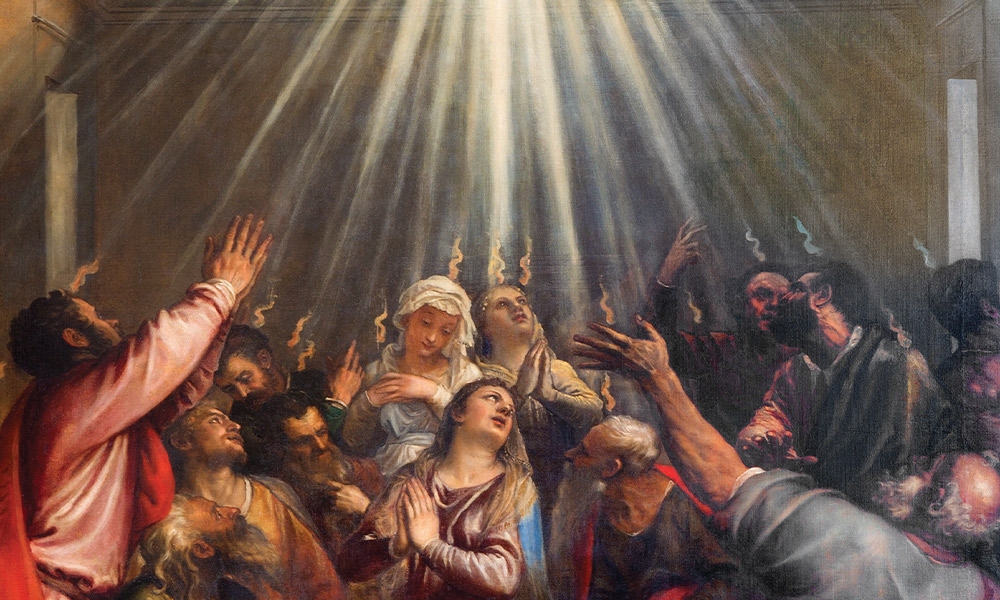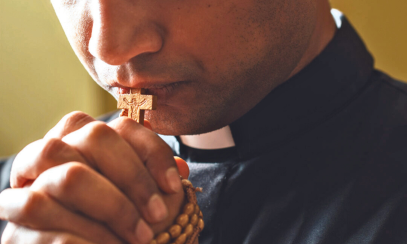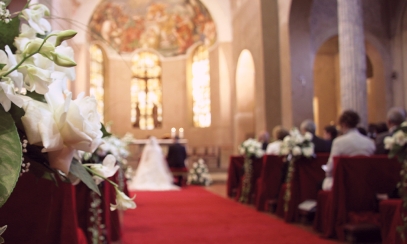
Receiving the Spirit through Christ: The Sacrament of Confirmation
The sacraments of initiation “ground the common vocation of all Christ's disciples, a vocation to holiness and to the mission of evangelizing the world. They confer the graces needed for the life according to the Spirit during this life as pilgrims on the march towards the homeland.” (Catechism of the Catholic Church 1533) Confirmation is the sacrament in which the baptized are strengthened by the Holy Spirit in order to bear witness to Christ and prepare to take on the role of a disciple.
The sacraments of initiation “ground the common vocation of all Christ's disciples, a vocation to holiness and to the mission of evangelizing the world. They confer the graces needed for the life according to the Spirit during this life as pilgrims on the march towards the homeland.” (Catechism of the Catholic Church 1533) Confirmation is the sacrament in which the baptized are strengthened by the Holy Spirit in order to bear witness to Christ and prepare to take on the role of a disciple.
This is the third post in our series exploring the seven sacraments of the Catholic Church. Check out a brief overview of all seven sacraments here.
Why do Catholics celebrate confirmation?
Through confirmation, those who have been baptized are strengthened by the Holy Spirit and called to make a stronger commitment to live as witnesses to Christ in their words and deeds.
Confirmation connects us to the larger, global Catholic Church. The bishop leads the faithful in a large geographical area (diocese) comprising many parishes. Through the action of the bishop, those who are confirmed are joined in faith with that larger community. Confirmation reminds us that we belong to the universal Church, and to a local diocese and parish.
At confirmation, we are called to participate fully in the Church’s work and mission – calling all to the love of Christ and taking part in building up the kingdom of God on earth. Jesus was anointed by the Holy Spirit at his baptism by John in the Jordan River, and was sent forth, strengthened by the power of the Holy Spirit, to do the work of his ministry. Likewise, once confirmed, we are “sent forth” to bear witness to Jesus’ death and resurrection, to serve others as Jesus served, and to be living members of his Church.
Who is confirmed?
Those who have been baptized may celebrate the sacrament of confirmation. Children who were baptized as infants generally celebrate confirmation around age 13, but it can be celebrated as early as seven years old depending on the guidance of the bishop. Adults are confirmed immediately after being baptized.
While bishops are the ordinary minister of the sacrament of confirmation, the bishop may grant priests the faculty. (CCC 1313)
What happens during confirmation?
The rite of confirmation, when celebrated separately from baptism, begins with the renewal of baptismal promises and the profession of faith. Then the bishop, who is the usual minister of the sacrament, extends his hand over the confirmand and invokes the outpouring of the Holy Spirit. Lastly, the confirmand is anointed with sacred chrism oil as the bishop says, “Be sealed with the gift of the Holy Spirit.” (See paragraphs 1297-1301 in the catechism)
The biblical basis for confirmation
But why is confirmation a sacrament? For his entire mission on earth, Jesus was in communion with the Spirit. Before he died on the cross, he promised the Apostles that the Spirit would come to them to give them strength. (Jn 14: 25-29) He foretold that the Holy Spirit would supply their needs when they faced adversity and persecution. (Mk 13:11; Jn 16) In Acts 8:14-16a, 17, the Apostles experienced confirmation for themselves at the hands of Christ on the first Pentecost:
“Now when the apostles in Jerusalem heard that Samaria had accepted the word of God, they sent them Peter and John, who went down and prayed for them, that they might receive the holy Spirit, for it had not yet fallen upon any of them; they had only been baptized in the name of the Lord Jesus. Then they laid hands on them and they received the holy Spirit.”



